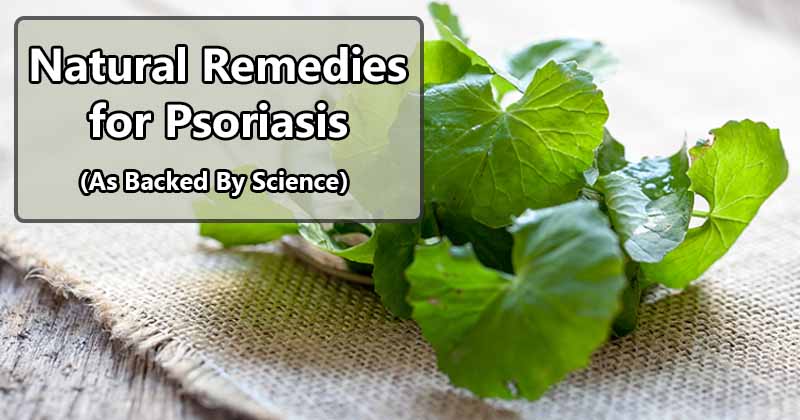When my husband first got psoriasis over a decade ago, doctors still chalked it up to “stress.” Luckily, the research on psoriasis has come leaps and bounds since then. We now know that psoriasis is an inflammation disorder which is linked to gut health.
There are many natural remedies for psoriais which can treat the underlying causes, such as fighting inflammation and balancing the gut microbiome. Below are some of the most promising herbal and plant remedies for psoriasis which are actually supported by scientific evidence.
But let me be clear: none of these herbal remedies for psoriasis are a quick cure. In my husband’s case, it took a LOT of diet modifications (very low carb intake, absolutely no refined sugar, lots of plant fiber…) in addition to these natural remedies.
1. Gotu Kola (Centella asiatica)
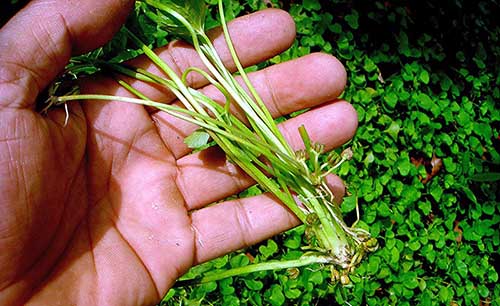
When applied topically, gotu kola speeds up wound healing, improves collagen levels, and reduces inflammation. When taken internally, gotu kola suppresses interleukin-related inflammation responses in the body. It also helps heal the gut and strengthen the gastric mucosal barrier.
How to take: Gotu kola is available as a tea and dried powders. However, these aren’t absorbed well by the body. If taking internally, it is better to take it as a glycerin extract or tincture (such as this one). To use topically, apply a few drops of glycerin gotu kola extract directly to psoriasis patches and rub it in. You can also dilute the extract in a carrier oil, such as cupuacu oil.
Learn more about how to take gotu kola here.
2. Slippery Elm Bark (Ulmus rubra)
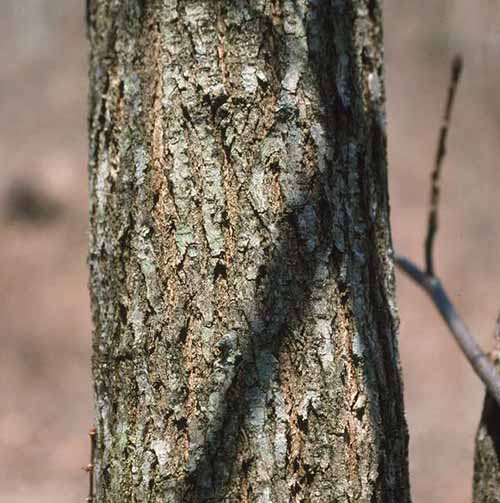
Slippery elm bark is one of the best known natural remedies for gut health. It also helps psoriasis by balancing the gut flora and reducing inflammation in the gut.
How to take: For psoriasis, slippery elm bark is best taken as internally. Oil extracts of slippery elm are the most potent, but you can also take slippery elm as a tea or powder mixed into smoothies.
Learn more about slippery elm here.
3. Oregon Grape Root (Indigo naturalis)
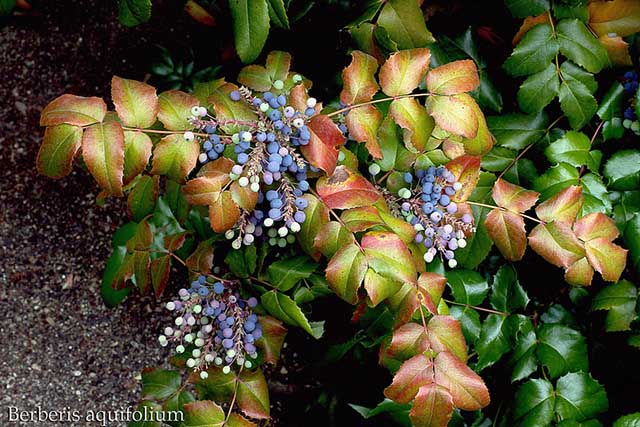
When root extracts are applied topically, alkaloids in Oregon grape slow down the rate of abnormal skin cell growth. It is also anti-inflammatory.
How to take: Choose a glycerin extract made with Oregon grape root. Apply a few drops to psoriasis patches and rub it in. Or mix the extract with a carrier oil. There are also many good psoriasis salves which contain Oregon grape root extract, such as this one.
See the best Oregon grape skin creams here.
4. Sacha Inchi Oil (Plukenetia volubilis)
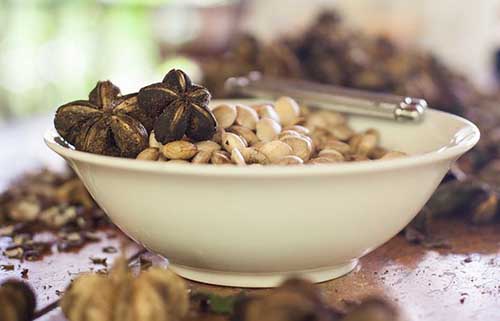
Oil from sacha inchi seeds is very moisturizing and can reduce itchiness in psoriasis. The oil also helps reduce inflammation and speed up skin healing. Taken as a powder or eaten whole, sacha inchi helps reduce inflammation internally because of its high levels of Omega 3 fatty acids.
How to take: You can rub sacha inchi oil directly onto psoriasis patches. Make sure you give it time to soak into your skin before putting clothes on. You can also take sacha inchi oil internally, such as by adding it to smoothies, oatmeal or salads. Never heat sacha inchi oil before consuming it.
Read more about sacha inchi benefits here.
5. Tamanu Nut Oil (Calophyllum inophyllum)
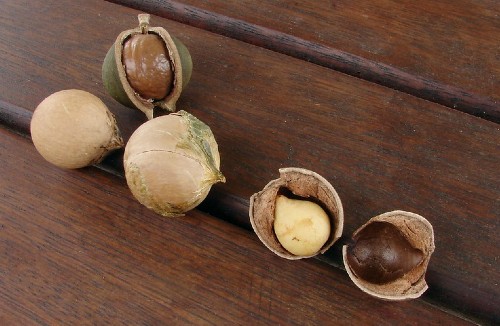
Not only is this nut oil very moisturizing and helps reduce itchiness, xanthones found in tamanu reduce inflammation and promote skin healing.
How to take: Rub tamanu nut oil directly onto psoriasis patches. Make sure you give it time to soak into your skin before putting clothes on.
Read more about tamanu nut oil for skin here.
6. Irish Sea Moss (Chondrus crispus)
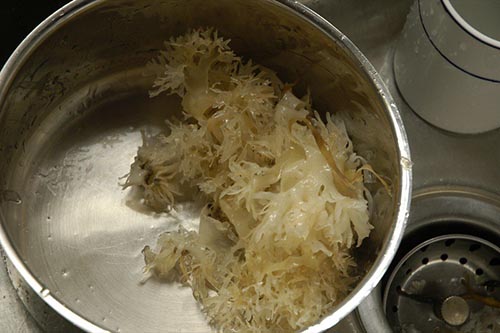
Irish sea moss is an excellent moisturizer because it binds to keratin fibers and holds moisture. It also contains carbohydrates called exopolysaccharides which helps build collagen. When consumed, Irish sea moss can help balance gut flora and reduce systematic inflammation.
How to take: For best results, you’ll need to get dried Irish sea moss and reconstitute it. This involves rinsing the dry moss, letting it soak, draining the soak water and then blending the moss into a gel. The gel can be added to recipes or applied directly to the skin.
Read about Irish sea moss benefits here.
7. Cupuacu Oil (Theobroma grandiflorum)
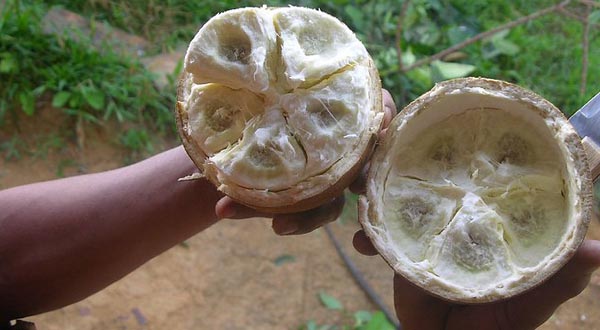
Cupuacu is an Amazonian tree which produces a massive nut which is full of fatty oils. Because the nut oils can absorb a huge amount of water, cupuacu is one of the best skin moisturizers for psoriasis. It also is anti-inflammatory because of its high levels of fatty acids and antioxidants. Cupuacu is usually applied topically but can also be taken internally to fight inflammation from the inside out.
How to take: Apply cupuacu oil directly to psoriasis patches. It is very oily, so you will probably want to do this before bed. Depending on where your psoriasis is located and the size of patches, you may need to sleep on a towel. To use internally, add the oil to salads, smoothies or other recipes. Never heat the oil before consuming.
Read more about cupuacu oil benefits here.
8. Milk Thistle (Silybum marianum)
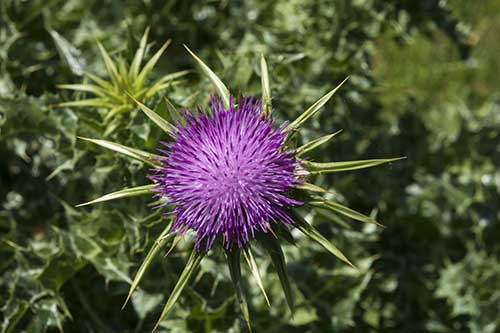
Milk thistle is one of the best-known herbs for psoriasis and there is a lot of scientific research backing up its effectiveness. The benefits are mostly attributed to a compound called silymarin which helps remove toxins from the liver. Because liver conditions are linked to psoriasis, taking milk thistle could help cure psoriasis. It also blocks inflammatory mediators like leukotriene. Because
How to take: The most popular way to take milk thistle for psoriasis is as a tea. However, it is much more potent when taken as a tincture or extract. There is no set dosage but it’s usually recommended to build up to 15 drops taken 3 times per day (for a total of 45 drops per day).
9.Turmeric (Curcuma longa)
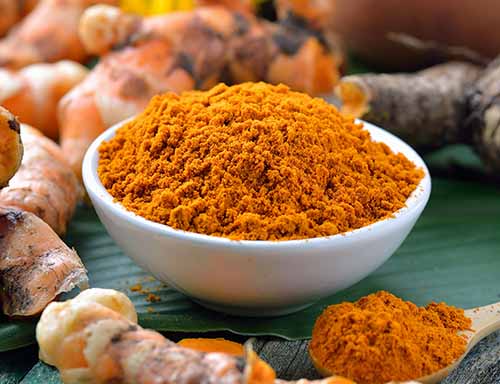
Turmeric is one of the best known anti-inflammatory plants. It can be taken internally or applied directly to the skin to treat psoriasis. Research shows that, in addition to its anti-inflammatory properties, it also balances the gut microbiome and this might be the real reason behind its benefits.Latin name:
How to take: Turmeric is usually taken internally. It is most potent if mixed with black pepper. You can also add turmeric to skin creams and apply directly to psoriasis patches, but you need to be careful because turmeric stains.
10. Borage Seed Oil (Borago officinalis)
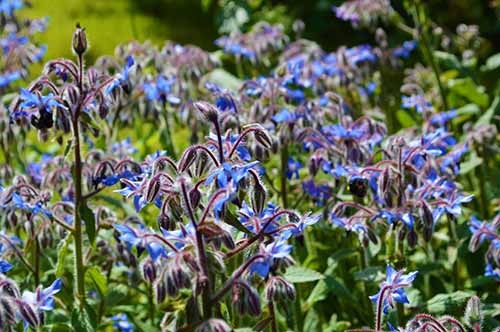
Oil from borage seed contains a type of fatty acid called GLA which is a great moisturizer. It also strengthens the skin barrier and heals damaged skin. When taken internally, borage seed oil can reduce inflammation in the body.
How to take: Borage seed oil can be applied directly to the skin without diluting. You can also take borage seed oil internally as a supplement.
Read more about borage seed oil benefits here.

